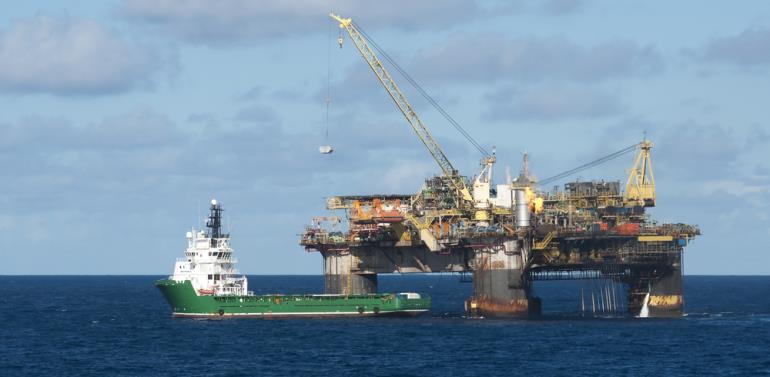International
Petrobras’ troubles highlight dreary prospects for oil production in Brazil till 2020

Petrobras, the operator of key pre-salt projects for Brazil’s oil production over the next five years, is one of the many Brazilian oil and gas companies facing a difficult financial future in the short term, according to an analyst with research and consulting firm GlobalData. This follows the tainting it has been subjected to by corruption and market turmoil.
Adrian Lara, GlobalData’s Senior Upstream Analyst covering the Americas, says that production from pre-salt fields will contribute an estimated 65 per cent of Brazil’s oil production by 2020, while there are 11.6 billion barrels of recoverable reserves from planned pre-salt projects.
This production depends on timely deployment of Floating Production Storage and Offloadings (FPSOs), pace and number of wells drilled, and productivity of the pre-salt wells. Nevertheless, the fact that Petrobras is more than $100 billion in debt makes the growth prospects rather slim.
“Petrobras has seen its capital investment and production forecast negatively impacted by the carwash corruption scandal, one of the largest cases of fraud in the history of oil and gas. Consequently, it has been forced to delay its development plans and has proposed budget cuts for the next two years,” elaborates Lara.
He also adds that Petrobras’ recent revisions to its production plans, forecasting 2.8 million barrels per day (mmbd) by 2020, which is 1.4 mmbd less than 2014, will be adjusted further. This is due to more recent Petrobras CEO statements indicating less capital expenditure and a larger divestment strategy. One key change in the investment plan for pre-salt production has been a significant reduction in the number of FPSOs brought online by 2019.
“Developing pre-salt assets remains vital in providing much-needed cash flow for Petrobras. However, most of these require significant additional investment, which will be hard to find considering the company’s current position,” Lara explains.
Although Petrobras rejected the idea of partnering with other operators in developing pre-salt resources, recent debates and announcements in the media, congress and statements from the ministry of finance and Petrobras’ CEO indicate that a discussion about changing these conditions might be feasible.
“Diminishing the local industry role and Petrobras’ leadership in the development of the pre-salt resources in favour of foreign oil and gas companies would certainly face opposition from workers’ unions and require substantial negotiation between key political parties. However, this might be the necessary trade-off to create the potential production growth from pre-salt areas,” says Lara in conclusion.
-

 News2 months ago
News2 months agoAI Security Conference 2025 Hosted by Securado Highlights the Changing Cybersecurity Landscape
-

 Insurance2 months ago
Insurance2 months agoSupporting Community Wellness: Liva Insurance Sponsors Muscat Marathon 2026 with Free Health Checkups
-

 Interviews1 month ago
Interviews1 month agoEXCLUSIVE INTERVIEW: TLS Rebranding Marks Strategic Leap Toward Innovation, Sustainability & Growth
-

 Insurance1 month ago
Insurance1 month agoLiva Insurance Supports Community Wellness Through “Experience Oman – Muscat Marathon 2026”
-

 Investment3 weeks ago
Investment3 weeks agoLalan Inaugurates Its First Overseas Manufacturing Facility, Marking Sri Lanka’s First Investment in SOHAR Freezone
-

 Dossier6 days ago
Dossier6 days agoDossier, 2026
-

 Banking & Finance1 month ago
Banking & Finance1 month agoA New Platform for SME Growth: Oman Arab Bank Unveils Tumouhi
-

 Food & Dining3 weeks ago
Food & Dining3 weeks agoGrand Millennium Muscat’s exclusive Ramadan Iftar and Suhoor Experiences






























You must be logged in to post a comment Login